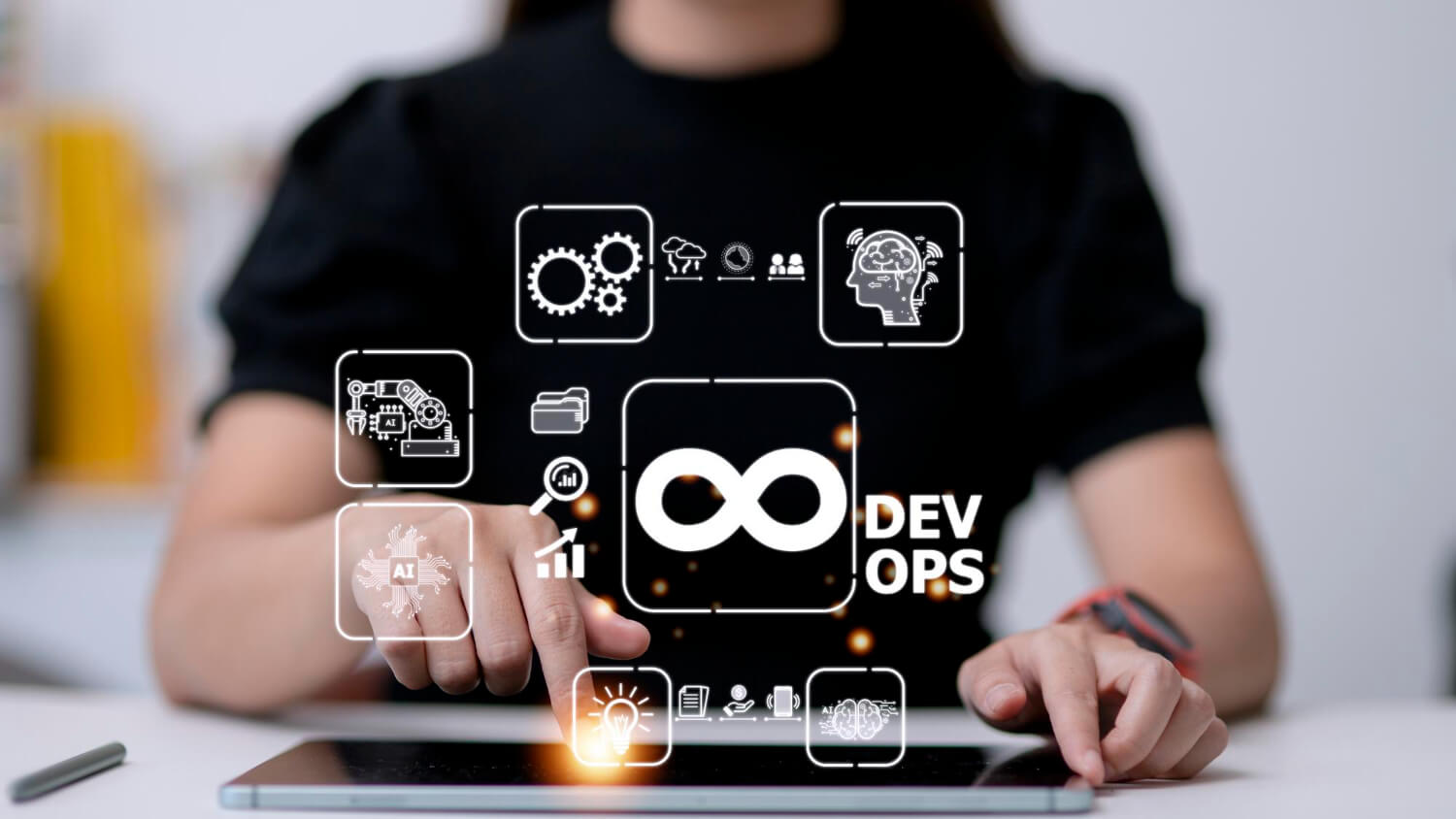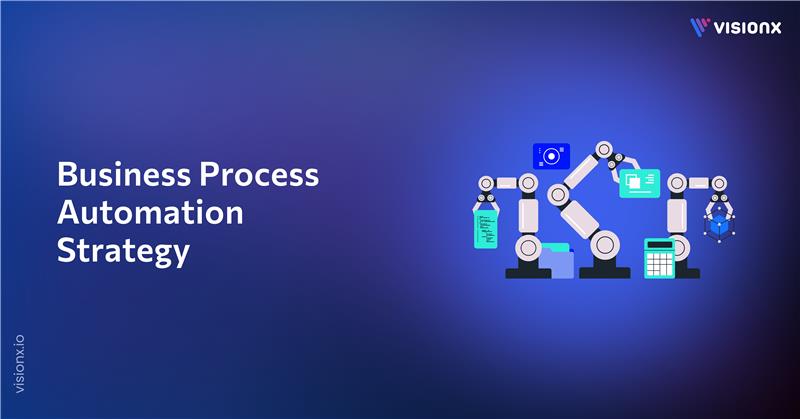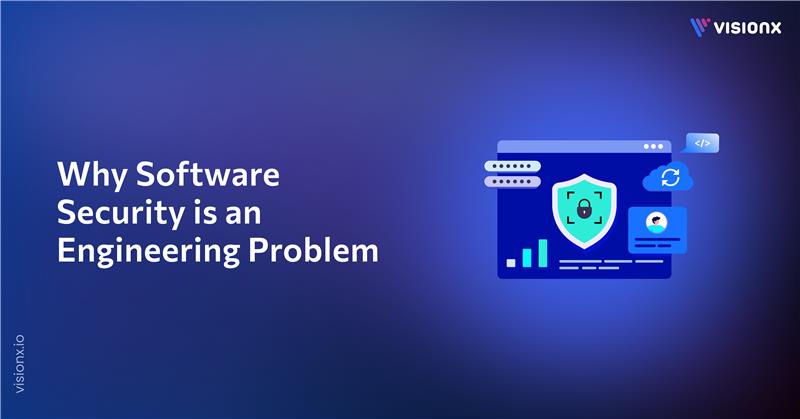Machine learning is gaining importance in various industries as it becomes more practical and less theoretical. Today, the blend of machine learning and DevOps has created a new discipline called Machine Learning DevOps (MLOps). It’s changing how organizations handle machine learning models. To understand MLOps, let’s begin by defining DevOps and exploring the rise of MLOps.
What is DevOps?
DevOps combines software development (Dev) and IT operations (Ops) to automate and streamline the process. Its main aim is to make software development faster and more reliable, from writing code to deploying it in production.
The emergence of Machine Learning DevOps (MLOps)
MLOps is an evolution of DevOps, focusing on efficiently managing machine learning projects. It addresses the unique needs of model development and deployment in various industries. DevOps machine learning is a collaborative approach between data scientists and IT ops experts, enhancing the efficiency of ML model creation, deployment, and management. This teamwork makes the process efficient, from developing models to deploying and monitoring them.
MLOps deals with essential parts of the machine learning process, like data management, model versioning, automation, and monitoring. By connecting data science and IT operations, MLOps helps organizations fully utilize machine learning, becoming essential in today’s tech world.
Understanding MLOps
In the fast-changing tech world, machine learning is reshaping industries by uncovering insights from vast data. However, as machine learning usage grows, organizations grapple with managing projects efficiently. That’s where Machine Learning DevOps steps in.
Key Objectives of MLOps
MLOps aims to automate Machine Learning, promote teamwork, and ensure effective deployment and monitoring. Let’s dive into its core components and how they connect ML and operations for a better grasp of MLOps.
Data Management
MLOps emphasizes the importance of data in machine learning projects, ensuring effective data management through collection, cleaning, and storage. DevOps machine learning professionals collaborate with data scientists to maintain data pipelines, facilitating the efficient flow of high-quality data into the ML process.
Automation
MLOps leverage automation to streamline the machine learning workflow, reducing the time and effort required from model development to deployment. Automation streamlines tasks like model training, testing, and deployment, enhancing efficiency.
Model Versioning
MLOps introduces model versioning, which helps track changes and improvements in machine learning models over time. It’s vital for keeping a history of model performance and ensuring reproducibility.
Continuous Improvement
Machine Learning DevOps encourages continuous improvement in the machine learning process. Regular reviews and optimizations help organizations adapt to changing needs and stay competitive.
Collaboration
MLOps encourages teamwork between data science and IT operations, breaking down barriers and enhancing communication so both teams’ expertise benefits the project.
MLOps unites machine learning and operations, automating the workflow, enhancing teamwork between data scientists and IT pros, and ensuring smooth model deployment. It empowers organizations to maximize machine learning’s potential and stay innovative.
MLOps vs. DevOps
MLOps and DevOps are related concepts in software development and deployment but have distinct focuses and objectives.
Focus:
DevOps enhances software development and delivery through collaboration and automation, while MLOps manages machine learning and AI projects, from data preparation to model deployment and monitoring.
Objectives:
DevOps enhances software development and delivery through collaboration, automation, and CI/CD, while MLOps simplifies machine learning projects by addressing challenges like data management and deployment.
Key Components:
DevOps utilizes version control, continuous integration, and automated testing for software development, while MLOps uses data and model versioning, pipelines, tracking, deployment, and monitoring for machine learning projects.
Tools and Technologies:
DevOps tools include Git, Jenkins, Docker, Kubernetes, Ansible, and CI/CD platforms, while MLOps tools include TensorFlow, PyTorch, DVC, MLflow, Docker, and Kubernetes.
Use Cases:
DevOps is for standard software development, while MLOps is tailored for machine learning and AI projects, covering areas like computer vision, natural language processing, and recommendation systems.
MLOps, a subset of DevOps, focuses on managing machine learning models and data throughout their lifecycle, while DevOps focuses on software applications.
Why MLOps Matters?
Machine Learning DevOps is essential for efficiently managing machine learning projects in our technology-driven world. Here’s why it matters:
- It makes the process faster, allowing quick model development and deployment.
- Implementing proper monitoring and feedback loops can significantly reduce the risks associated with model failures.
- It promotes teamwork and communication across functions.
- Efficient processes can significantly decrease the expenses linked to model development and deployment.
- Machine Learning Organizations (MLOps) gain a competitive advantage by utilizing machine learning tools and techniques.
Machine Learning Workflow
The ML workflow is a structured process for creating, using, and managing machine learning models. It’s important for leveraging data-driven insights and AI. Knowing its stages and components is key to successful model development.
Challenges in Traditional ML Model Development
- Data Management: Preparing data for model training is time-consuming and prone to errors.
- Model Selection: Picking the suitable algorithm and model architecture demands expertise and experimentation.
- Training and Evaluation: Running experiments, tuning settings, and assessing model performance require significant computing resources.
- Deployment: Going from a working model to a production application is complex and risky.
- Monitoring and Maintenance: After deployment, it’s an ongoing challenge to watch model performance, retrain as needed, and maintain reliability.
Where MLOps Fits In?
DevOps machine learning tackles the issues and organizes the ML workflow. It focuses on collaboration, automation, and ongoing enhancements. Here’s how Machine Learning DevOps integrates with the ML workflow:
- MLOps pros streamline data collection, preparation, and storage for efficient model development.
- Automated tools in MLOps simplify model choice and hyperparameter tuning.
- MLOps automates model training, reducing time and resources. Continuous integration and deployment support smooth transitions to production.
- It also provides best practices for seamless and reliable model deployment into production environments.
- MLOps establishes monitoring and feedback loops for model failure detection and maintenance.
Understanding the machine learning workflow and MLOps is vital for organizations to make the most of machine learning. MLOps boosts efficiency by simplifying traditional model development, making data lead to valuable insights faster.
The DevOps Machine Learning Lifecycle

- The MLOps Lifecycle begins with data collection and preprocessing, which involves gathering, cleaning, and structuring data from various sources for model development.
- After data preparation, the next step is model training and evaluation. Data scientists employ ML algorithms to create and train models and then carefully assess their performance and accuracy.
- Once a model shows it works well, it’s deployed. Here, the model becomes part of the production setup, making real-time predictions or decisions based on incoming data.
- Deployment is not the final destination. Continuous monitoring is vital to ensure the model’s real-world performance meets expectations. It means observing the model’s behavior, spotting problems, and adjusting as needed to maintain peak performance.
- Models must adapt to changing data patterns, and this is where model retraining comes in. In the Machine Learning DevOps Lifecycle, model retraining uses new data to update and improve the model’s predictive abilities.
These five stages guarantee smooth model development, deployment, and maintenance, enabling organizations to use data and AI’s potential effectively.
Best Practices in Machine Learning DevOps
- MLOps stresses the need for teamwork between data scientists and IT professionals. Effective teamwork is vital for a smooth machine-learning workflow, from model development to deployment and monitoring.
- In MLOps, model versioning and data versioning are key. It means keeping track of model and data changes, helping data scientists maintain a record of successful models, and ensuring consistency.
- Automation is central to Machine Learning DevOps. It automates model training, testing, and deployment, making the process more efficient and reliable.
- Machine Learning DevOps sets up continuous monitoring to catch model issues early and ensure accurate results with real-time feedback.
- MLOps is designed to handle extensive data and complex models. It’s scalable and flexible, adapting to changing project needs, whether scaling up or down.
By following these best practices in Machine Learning DevOps, organizations can efficiently handle their machine learning projects. This includes boosting collaboration, preserving model consistency, and keeping machine learning workflows efficient and dependable.
MLOps Tools and Technologies
- ML Frameworks and Libraries: TensorFlow and PyTorch are must have machine learning libraries for creating machine learning models and offer pre-built algorithms and data manipulation tools.
- CI/CD Tools: CI/CD tools, such as Jenkins and Travis CI, automate software testing and deployment, including machine learning models.
- Containerization Platforms: Docker and Kubernetes streamline the packaging and deployment of machine learning models in consistent, portable containers that function across diverse environments.
- Orchestration Tools: Tools such as Apache Airflow and Kubernetes help manage and schedule complex workflows, streamlining the deployment of machine learning pipelines.
- Monitoring and Logging Solutions: Prometheus and ELK Stack are vital tools for real-world performance tracking and data collection of machine learning models.
These tools and technologies are the foundation of MLOps, enabling organizations to create, deploy, and manage machine learning projects efficiently.
Challenges in Implementing MLOps
The implementation of Machine Learning DevOps presents several challenges. Some are:
Model Selection and Tuning
Choosing a suitable algorithm and model structure is vital for effective model development. Data scientists must experiment with various options and fine-tune parameters for optimal performance. This process demands expertise and computational resources.
Data Management Challenges
Managing data for machine learning can be complicated. It involves tasks like collecting, cleaning, and storing data in a format suitable for model development. This process is time-consuming, particularly when handling large datasets. Ensuring data quality and availability poses a significant challenge.
Model Training and Evaluation
Efficient model training and evaluation are vital in machine learning models. They require significant computational power and can be challenging to allocate resources for large datasets.
Deployment Complexity
Moving from a well-trained model to a production-ready application can be challenging. This involves integrating the model into existing systems, ensuring scalability, and handling real-time data. Deployment challenges may cause delays in delivering machine learning solutions.
Monitoring and Maintenance
After deployment, continuous monitoring is vital to ensure the model functions as expected in real-world conditions. This includes detecting issues, identifying model failures, and making necessary adjustments. Maintaining model accuracy and reliability can be resource-intensive.
DevOps machine learning, which involves data management, model development, deployment, and monitoring, is vital in addressing complexities in machine learning workflows. It requires automation and collaboration between data scientists and IT operations.
Machine Learning DevOps Benefits
MLOps integrates DevOps best practices with machine learning project-specific requirements, offering numerous benefits such as:
- Collaboration: It encourages teamwork between data scientists and IT experts.
- Data Efficiency: Streamlines data management, saving time and resources.
- Faster Development: Speeds up model creation and decision-making.
- Reliable Deployment: Ensures a smooth transition to real-world usage.
- Monitoring and Maintenance: Detects issues for accurate results.
- Cost Savings: Optimizes resources, making projects cost-effective. MLOps enhance project management, teamwork, and efficiency.
Shaping the Future of Machine Learning DevOps
The future of Machine Learning DevOps (MLOps) is promising due to key trends and aspects that may influence its innovation and growth.
- MLOps and DevOps will work together more closely, making it easier to manage software and machine learning projects.
- Advanced AutoML tools will handle many machine learning tasks automatically, making the process smoother.
- Tracking changes to models and datasets will be a big focus to ensure accountability and reproducibility.
- Serverless platforms will become more popular for running machine learning workloads without dealing with infrastructure.
- Integrating tools and practices will be implemented to explain model decisions and ensure compliance with regulations.
- AI will help optimize deployment and monitoring processes within MLOps.
- Collaboration and knowledge sharing among different teams will lead to more efficient Machine Learning DevOps.
- MLOps will adapt to support machine learning in edge and IoT environments, which have unique challenges.
- Ethical considerations and compliance with regulations will be an integral part of MLOps.
- The MLOps community will grow, leading to the development of common standards and tools.
- Organizations will use a mix of cloud providers, so MLOps solutions must work with different cloud platforms.
In the future, DevOps machine learning will focus on automation, teamwork with DevOps, better model management, clarity in AI decisions, and ethics. This collaboration between machine learning and DevOps will make developing and deploying machine learning models more efficient and effective.
Wrapping Up
MLOps is a transformative framework in software development, bridging the gap between DevOps and machine learning demands. It integrates data-driven models, ensuring scalability and reproducibility. MLOps emphasizes collaboration and uniting data scientists and IT operations experts, fostering successful projects and promoting innovation.
Companies like VisionX are leading the way in adopting MLOps for their digital transformation. For them, MLOps is not just a trend but a crucial strategy. By using MLOps, they’re unlocking the full power of machine learning and data-driven insights. The journey has just started, and the potential is vast.


